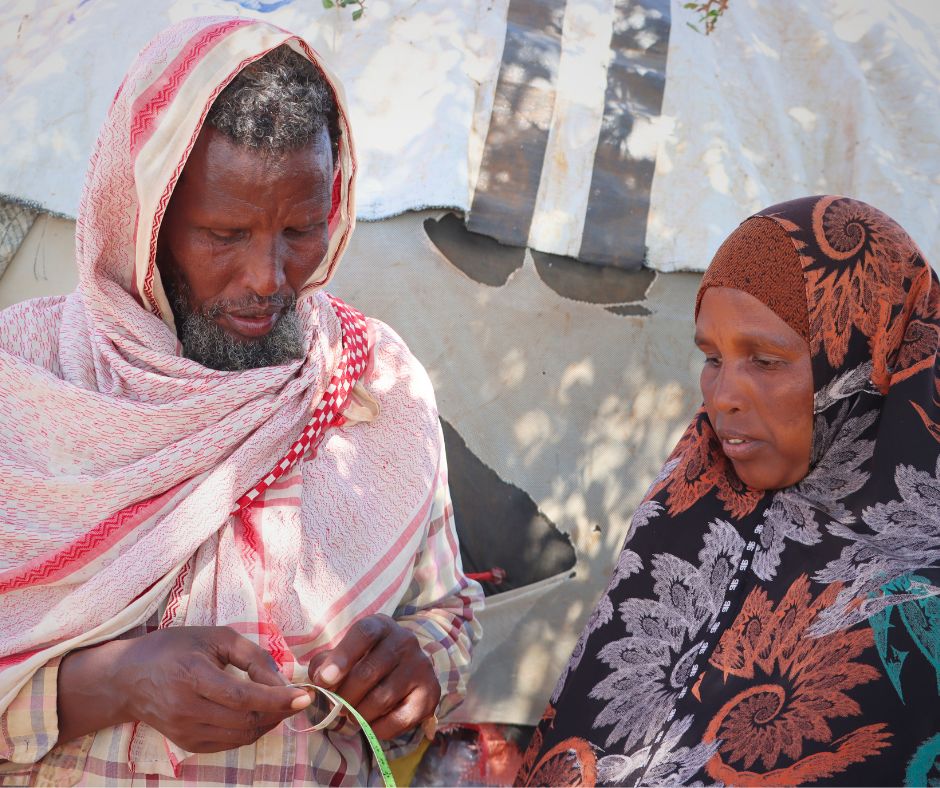This week, the Caafimaad Plus Consortium held a four-day CMAM Surge Train of Trainers (TOT) refresher training program in Mogadishu, Somalia, facilitated by Concern World Wide for its partners. The training was attended by 18 participants, including 3 females, who were mainly staff from various health facilities. The training aimed to equip the ToTs with facilitation skills and knowledge of the CMAM surge approach, enabling them to facilitate the process of scaling up the approach in more health facilities and supporting existing facilities.
The training program included both indoor interactive sessions and exposure visits which challenged the participants with real-life scenarios of the approach implementation.
The CMAM Surge approach is a community-based management strategy designed to improve the resilience of health systems, particularly during periods of high demand for acute malnutrition treatment. It involves eight practical steps that empower health workers to identify risk factors and patterns of malnutrition and common child illnesses in their community, assess their capacity to manage increased caseloads, and implement a practical action plan at the health facility level. This approach aims to ensure uninterrupted delivery of services while maintaining quality standards even when the capacity of the health system is overwhelmed.
The CMAM surge approach was launched in 2021 as a pilot in two facilities, and it was later expanded to five health facilities across the region. This approach has been demonstrated to be effective in enhancing the capacity of health systems and staff to manage surge caseloads while maintaining service quality. This year, the approach will be scaled up to additional facilities in the districts where Caafimaad Plus operates.
The CMAM Surge approach has enabled health facility staff to utilize their data to identify existing gaps easily and take prompt action. Moreover, with increased engagement of the District Health Management Team (DHMT) and community representatives, there is a more effective flow of information, which is crucial for addressing malnutrition and other health challenges in the community.
Masuud Ahmed, the training facilitator from Concern World Wide, stated that the CMAM Surge approach is a valuable tool for managing malnutrition in the Somali context. “In protracted environments where crises recur, it is essential that healthcare workers are equipped with the necessary knowledge and skills to predict, prepare for, and respond adequately and in a timely manner to manage acute malnutrition effectively,” he said.
Over the past two years, the CMAM Surge approach has proven to be effective in managing surges of malnutrition cases in health facilities. During these surges, the facilities implementing the approach were able to exceed their predefined admission thresholds for malnutrition cases. By utilizing the CMAM Surge approach, the staff was able to closely monitor the caseload, take immediate action when the surge occurred, and maintain high quality with the best performance indicators.
This success highlights the importance of equipping healthcare workers with the necessary skills and knowledge to manage acute malnutrition in crisis situations and the potential of the innovation approaches in improving the nutritional outcomes of vulnerable populations.
With its wide geographical network and the different expertise from different partners, the consortium uses a knowledge exchange program to tap into the technical expertise of its partners and provide training to other partners, ultimately saving lives.
The Caafimaad Plus Consortium, consisting of five international non-governmental organizations and three local non-governmental organizations, is funded by the European Union Civil Protection and Humanitarian Aid to provide life-saving emergency health, nutrition, and WASH assistance to drought and conflict-affected populations in Somalia.









